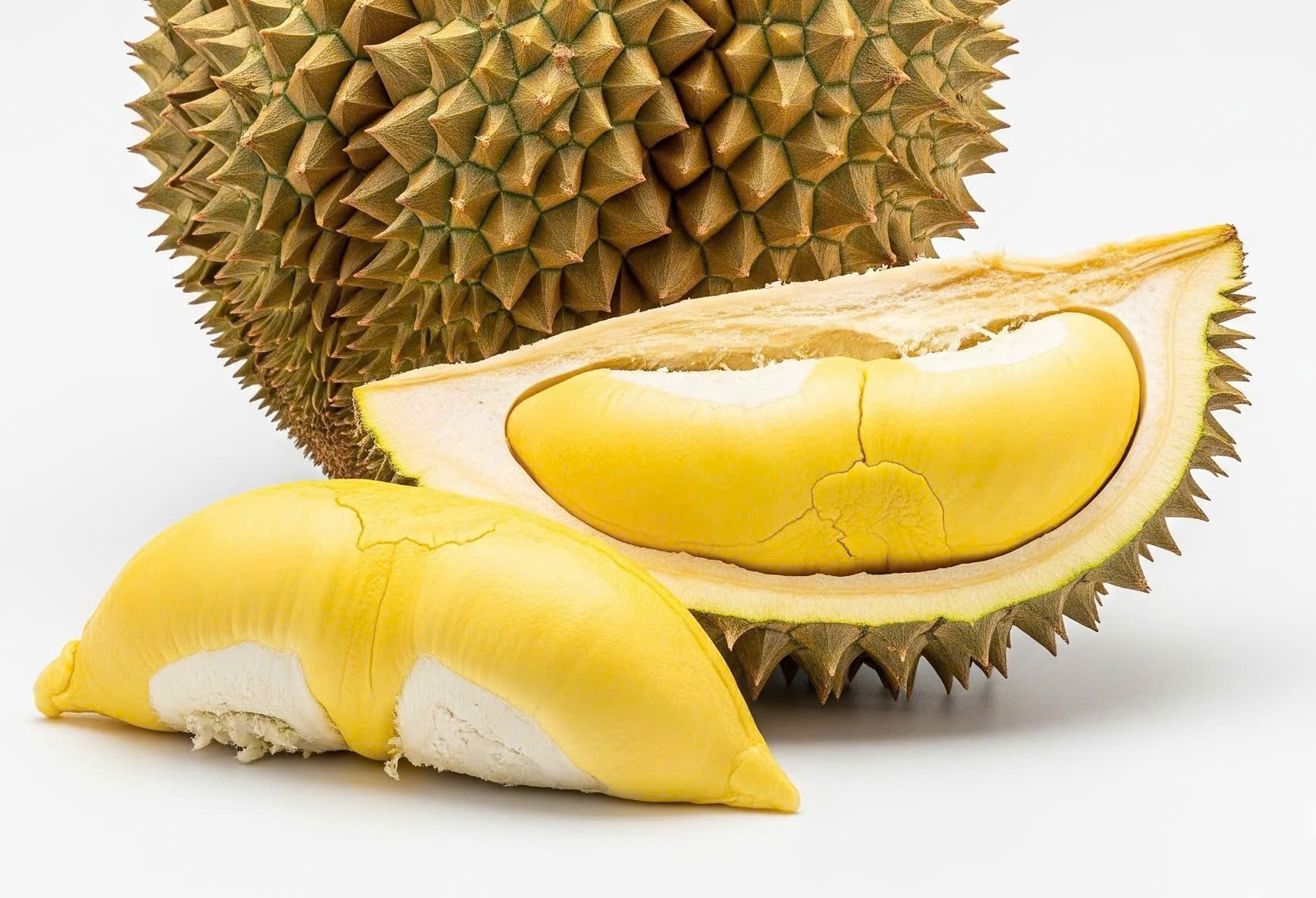Durian is a high-calorie fruit. 100g of durian provides approximately 147 kcal, including 27.1g of carbohydrates (19g of which are natural sugars), 1.5g of protein, 5.3g of fat, and 3.8g of fiber. It's also a good source of potassium, vitamin C, vitamin B6, and antioxidants that help neutralize free radicals, supporting cardiovascular health and the immune system.
Doctor Nguyen Anh Duy Tung from the Nutrihome Nutrition Center explains that people with diabetes don't need to avoid durian entirely, but they should consume it in moderation and as part of a balanced diet. Durian has a medium glycemic index (GI) of around 55-65 (depending on the variety). However, it can still raise blood sugar if eaten in large quantities or with starchy foods. He recommends eating 1-2 small arils (equivalent to 40-60g) at a time, avoiding consumption in the evening or on an empty stomach. The ideal time to enjoy durian is 1-2 hours after a main meal, when the body has absorbed a stable baseline of energy.
Avoid eating durian with starchy foods like white rice, noodles, or sweet treats, as this can lead to significant blood sugar spikes. Instead, pair durian with fiber-rich foods like chia seeds, green vegetables, or protein sources like unsweetened yogurt or nut milk to slow down sugar absorption.
 |
People with diabetes can enjoy durian as part of a healthy diet without significant blood sugar spikes. Photo: Trong Nghia |
It's important to avoid consuming durian before or after drinking alcohol, coffee, or beer, as this can cause bloating, indigestion, and even increased blood pressure due to interactions with the fruit's active compounds. Because of durian's high calorie and fat content, regular or excessive consumption can lead to weight gain, which can worsen insulin resistance. Monitoring blood sugar levels before and after eating (about 1-2 hours after consuming durian) helps track the body's response. If blood sugar rises by more than 40 mg/dL compared to pre-meal levels, adjust the intake amount or avoid durian in the future.
Doctor Duy Tung advises people with diabetes to have regular check-ups with endocrinologists and nutritionists for personalized guidance on managing blood sugar levels and creating a suitable diet. He also suggests incorporating natural extracts like GDL-5 from South American sugarcane, which contains natural policosanol, to help regulate blood lipids, support blood sugar control, and prevent cardiovascular disease.
Trong Nghia
| Readers can submit their nutrition-related questions here for expert answers. |












